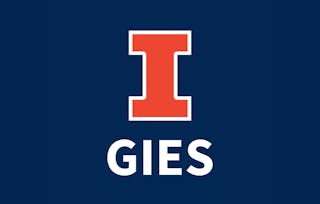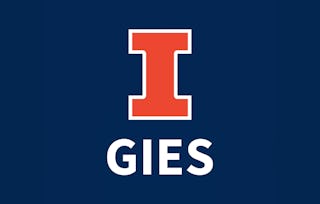Curious about the global debate on whether multinationals pay their fair share of taxes? This course from Leiden University is designed to demystify international tax planning for all learners — whether you're a beginner or an expert. Over five modules, you'll explore the principles of multinational taxation, understand the strategies companies use to minimize taxes, and examine the international and domestic laws governing these practices. The course also delves into the measures taken to counter tax avoidance. With expert interviews and concise video lectures, you’ll gain a comprehensive understanding of the key issues in multinational taxation.
即将结束: 只需 199 美元(原价 399 美元)即可通过 Coursera Plus 学习新技能。立即节省

您将学到什么
Participants will gain a comprehensive understanding of corporate tax systems and the OECD's work on the Base Erosion and Profit Shifting project.
要了解的详细信息

添加到您的领英档案
11 项作业
了解顶级公司的员工如何掌握热门技能

该课程共有5个模块
This week, we're starting our adventure into how countries tax international businesses. Recently, there's been a lot of talk about how big companies plan their taxes to pay as little as possible. We're going to look into why everyone's talking about this now, what the big discussions are really about, and who's involved. We'll also get to the basics of how these companies plan their taxes by looking at a base case, which we'll explore more as the course goes on.
涵盖的内容
11个视频11篇阅读材料2个作业1个讨论话题1个插件
In this module, we'll begin to deconstruct our foundational case study on tax planning. Our focus will be on exploring how corporate tax law systems are structured. Through the videos and the suggested readings, we'll examine the common components that make up these corporate tax law systems.
涵盖的内容
8个视频4篇阅读材料3个作业
In our third module, we'll proceed with our examination of the tax planning foundational case. Building on what we learned in module 2 about the usual structures of corporate tax laws, we'll delve into the international dimensions of these systems, including preferential policies and discrepancies in qualification. Additionally, we will explore the essence of international tax law, focusing specifically on double taxation agreements.
涵盖的内容
8个视频6篇阅读材料3个作业
In this module, we will concentrate on the efforts of the OECD to address the tax planning tactics employed by multinational corporations. Specifically, we will explore the OECD’s initiative known as the Base Erosion and Profit Shifting project, or BEPS project 1.0.
涵盖的内容
8个视频6篇阅读材料1个作业
In this module, we will delve deeper into the OECD's ongoing efforts to curb the tax planning strategies utilized by multinational corporations. Building on our initial discussions, we will focus on the subsequent phase of the OECD's initiative, referred to as BEPS 2.0. This segment of the project represents a continuation and evolution of the strategies initially introduced to tackle base erosion and profit shifting. Through our exploration, we will gain insights into the more advanced measures and recommendations proposed under BEPS 2.0, understanding their significance in the global tax landscape.
涵盖的内容
8个视频6篇阅读材料2个作业
位教师

从 Finance 浏览更多内容
 状态:预览
状态:预览University of Illinois Urbana-Champaign
 状态:免费试用
状态:免费试用University of Illinois Urbana-Champaign
 状态:免费试用
状态:免费试用University of Illinois Urbana-Champaign
 状态:免费试用
状态:免费试用University of Colorado Boulder
人们为什么选择 Coursera 来帮助自己实现职业发展




学生评论
19 条评论
- 5 stars
100%
- 4 stars
0%
- 3 stars
0%
- 2 stars
0%
- 1 star
0%
显示 3/19 个
已于 Nov 20, 2024审阅
It was really good and helped me to understand and grasp the concepts under international taxation
常见问题
To access the course materials, assignments and to earn a Certificate, you will need to purchase the Certificate experience when you enroll in a course. You can try a Free Trial instead, or apply for Financial Aid. The course may offer 'Full Course, No Certificate' instead. This option lets you see all course materials, submit required assessments, and get a final grade. This also means that you will not be able to purchase a Certificate experience.
When you purchase a Certificate you get access to all course materials, including graded assignments. Upon completing the course, your electronic Certificate will be added to your Accomplishments page - from there, you can print your Certificate or add it to your LinkedIn profile.
Yes. In select learning programs, you can apply for financial aid or a scholarship if you can’t afford the enrollment fee. If fin aid or scholarship is available for your learning program selection, you’ll find a link to apply on the description page.
更多问题
提供助学金,



